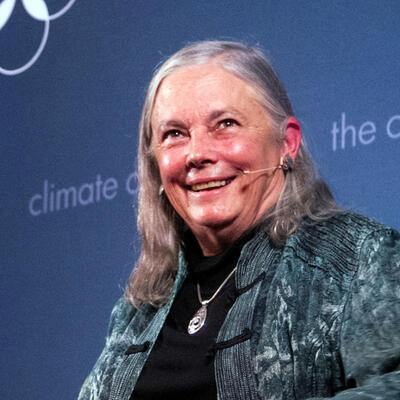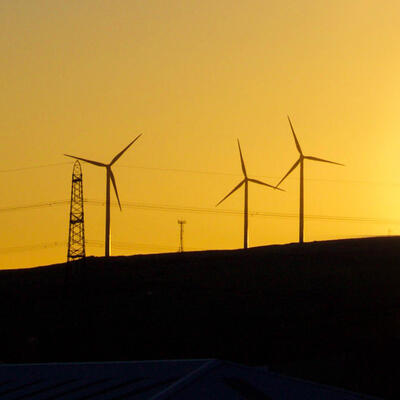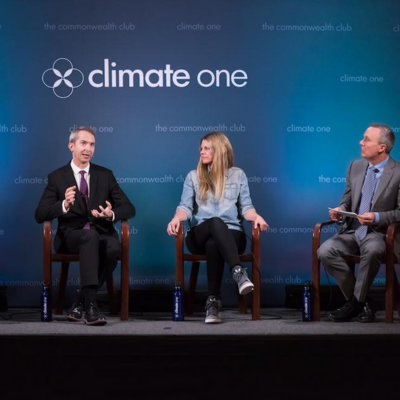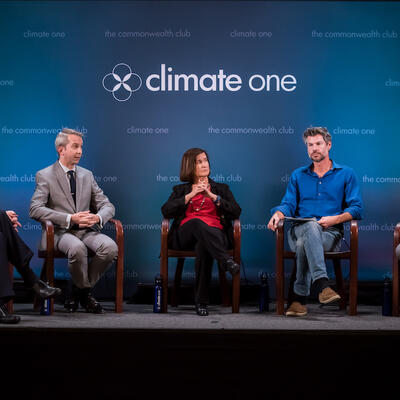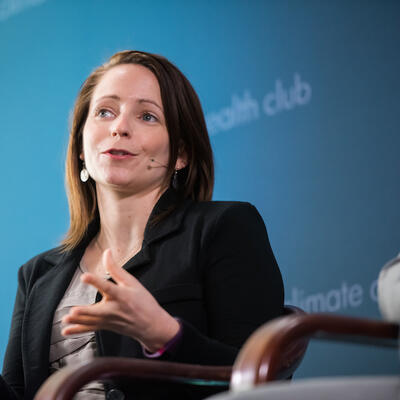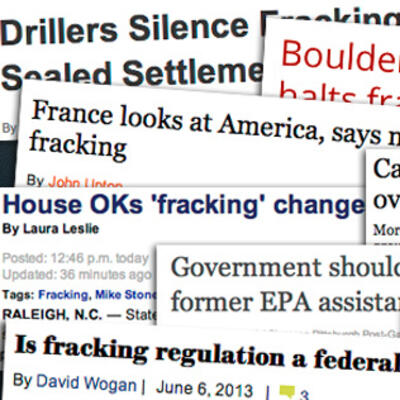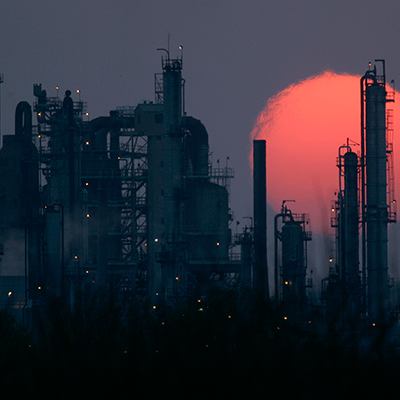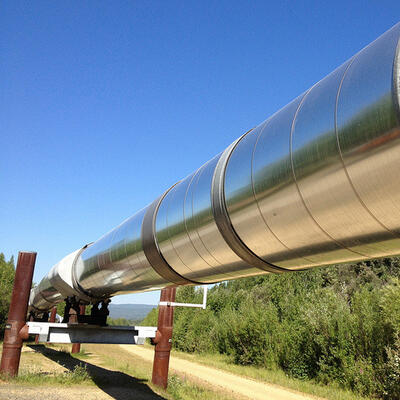
Keystone and Beyond
Guests
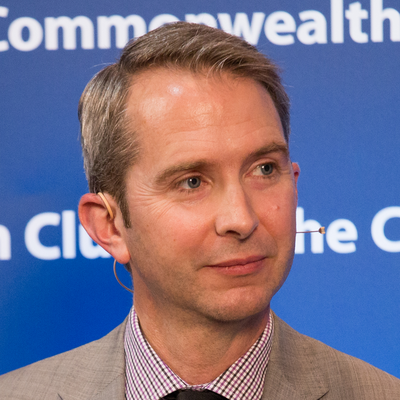
David R. Baker
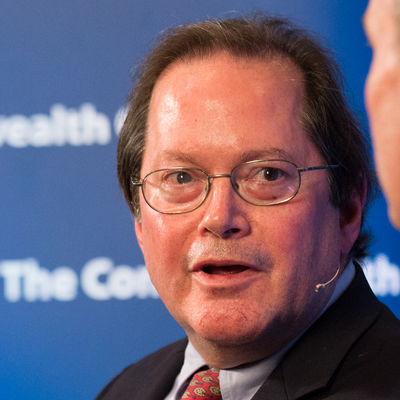
John Cushman
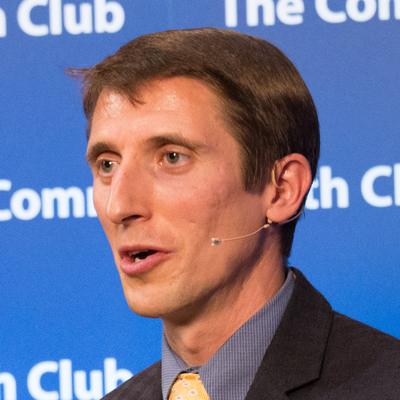
Dan Matross
Summary
By land, by sea or via the Keystone Pipeline, Canadian oil is coming to satisfy our energy thirst. But is our need for fossil fuel a foregone conclusion?
David Baker, Energy Reporter, San Francisco Chronicle
John Cushman, Author, Keystone and Beyond: Tar Sands and the National Interest in the Era of Climate Change (Inside Climate News, 2014); former New York Times reporter
Dan Matross, Trade Commissioner on Science and Sustainable Technologies at the Consulate General of Canada
Full Transcript
Greg Dalton: Welcome to Climate One, changing the conversation about America's energy, economy, and environment. I'm Greg Dalton. Today we're discussing the Keystone Pipeline and fueling the future. An energy boom in the United States and Canada is changing the world in ways unthinkable a few years ago. Domestic oil production is the highest since Simon and Garfunkel and the Carpenters topped the music charts in 1970. Imports are way down. Supporters say the Keystone Pipeline will provide reliable energy from a friendly neighbor. Opponents say it will ignite a carbon bomb that could destabilize the U.S. economy.
Over the next hour, we will discuss oil, cars, and more with our live audience here at the Commonwealth Club in San Francisco. We are pleased to have with us three guests. David Baker is energy reporter with the San Francisco Chronicle. And Jack Cushman is author of Keystone & Beyond: Tar Sands and the National Interest in the Era of Climate Change. He's a former New York Times reporter. And Dan Matross is trade commissioner on Science and Sustainable Technologies at the Consulate General of Canada. Please welcome them to Climate One.
[Applause]
Greg Dalton: Jack Cushman, let's begin with you and tell us the back story. There's this pipeline that no one ever heard of until a few years ago. Where did it come from? Set the stage for us.
Jack Cushman: Well the Keystone Pipeline came out of a long process of decades in which the oil sands or tar sands of Canada took their position as a big new source of energy on the world market, but most importantly in the North American market. And I was asked to write about this because it had become a touchstone of the environmental movement, and we wanted to think through how President Obama would make a decision, which through an oddity of our legal structures, it falls to him to grant a permit for this pipeline because it crosses an international border, whereas pipelines that are built within this country don't require a presidential permit - this one did.
So I, not knowing all that much about the Keystone Pipeline at the time, set out to explore how a president might make a decision about a project like this. And I was guided by a work that I've studied by Richard Neustadt, a presidential historian, called Thinking in Time, a book about presidential decision-making. And among his very valuable pieces of advice for presidents was don't start with a list of options, start with a timeline, understand how you got to the point where you have to be making this decision today. So that's what I set out to do. I took that decision back before the election of the second President Bush against Al Gore in the year 2000.
When George Bush and Dick Cheney came to office, one of the first things they did was to conduct an energy policy review. Much of it was done behind closed doors. We don't know all the advice they got from the industry. Despite a number of lawsuits to get hold of those papers, Cheney's office was able to keep them from public view. But we do know that they consulted extensively with the oil industry and with the tar sands industry in Canada. They came out of that review with two key thoughts in mind for their oil policy. One was, U.S. production of oil had peaked and was going to be in decline for as long as the eye could see.
The other was that U.S. demand for oil was going to continue to go up. It was going to go up 25% in the next couple of decades and therefore we were in a real bind, and we really needed to break our reliance on unstable sources of supply and that meant turning to Canada. Could we and the Canadians make the tar sands work as a stable, reliable source? What we now know, of course, is that U.S. oil production had not peaked, and U.S. demand did not go up so those fundamental premises were indisputably wrong. But people can be wrong in their expectations and we continue to be wrong in our expectations from time to time.
There was another thing that was changing over these years as we got to the Obama decision and that was the view of climate change. The Bush-Cheney position was to emphasize the uncertainty and they would never agree even a carbon dioxide was a pollutant that ought to be regulated. When Obama came into office, he reversed both of those. He has a policy that emphasizes the increasing certainty of the climate science and his entire agenda has been to recognize that carbon dioxide is a pollutant. It endangers the public health and natural ecosystems. It's subject to regulation under the Clean Air Act and in other ways, and that he says one of his priorities to reign in this pollution in accordance with the new science.
So when Obama addresses the question of the Keystone, he's doing so on fundamentally different premises than those that were brought to the table at the beginning of this project. Now you all know that the project itself has been delayed for some time. I'm not going to go through the history of pipeline projects, but it's come down to the question of whether building this pipeline would have a deleterious effect on global warming. In other words, would it be a significant driver of new CO2 emissions. This is a completely different basis for the decision than the basis for the decision that was envisioned at the start of this process. I think we're going to see a clip.
Greg Dalton: We actually don't have the Clinton clip, unfortunately, but you can say what she said.
Greg Dalton: We're talking about an interview that I did with the Secretary of State Hillary Clinton in 2010.
Jack Cushman: You asked her about a different pipeline, one that was just about to be approved. That was the Alberta Clipper but she answered it in terms of the Keystone Pipeline, which had bubbled its way up to be the next big decision. She said in effect, "We have to get our oil from somewhere. If we don't get it from Canada, until we get our act together, we're going to have to get it from some less stable foreign source of supply." Well there are two interesting things to me about this little exchange.
One is, when they approved the Alberta Clipper, for the first time they were asked internally to examine the greenhouse gas emissions that would be involved in approving that pipeline. The State Department in finding that it was in the national interest to build that pipeline said, "We recognize that there are greenhouse gas implications, but this is not the place to answer those concerns because we have two other things that are going on. The Congress is about to pass, the House had passed, and it was hoped that the Senate would pass, a comprehensive energy bill that would have a cap and trade system that would put a price on carbon for the first time." This would have had profound effects on the trade between the U.S. and Canada and tar sands oil.
The second thing they said was about to happen. At Copenhagen, we were going to negotiate an international framework for the control of carbon dioxide emissions, and that international framework was the appropriate place to make decisions pertaining to greenhouse gas emissions. Well as we all know now, neither of those things happened. We're still in a place where the Congress has not accepted the view that we have to put a price on carbon, and we're still in a place where it's completely uncertain whether the world will be able in Paris next year to negotiate a greenhouse gas treaty. And so absent that kind of approach that could more sensibly drive our decision-making, the Keystone seized this particularly cogent spot in the debate and became the fulcrum for mobilization against one particular project.
Everybody understands that the real question is, are we going to accept the new science on climate change and are we going to act in a way to address that with the needs of the next couple of generations in mind? But for the moment, we've been stuck with the pipeline debate and that's what brings us to this decision.
Greg Dalton: Let's pick it up there. Dan Matross, the question there, will this pipeline, is it a big pipe bomb that's going to blow up the climate and really hurt future generations?
Dan Matross: Well first off, a pleasure to be here. Thanks for inviting me. A pleasure to bring the Canadian perspectives to this panel. Is it a pipe bomb? No. I think it's pretty clear from the analysis that the State Department has done that this oil is going to come to the global market, and I think we're seeing that global demand for oil is increasing. I think it's increased 4% in the last few years. So despite some economic challenges in the global economy, the global demand for oil is increasing, so it does come down to this climate question.
The oil in the Alberta oil sands is going to get to market. There's other pipelines, there's rail, there's other methods to get this product to market. One of the things that the Canadian private sector has really come to learn throughout this Keystone process is that, environmental performance is part of the competitiveness of the oil product that's coming out of Alberta. So I think the environmental performance of Alberta oil sands oil is increasing. They're doing it more efficiently. They're doing it with brand new sources of innovation, new technology. The oil sands story itself is actually a story of innovation. So I think this oil is going get to market. The pipeline is in terms of quantity is a drop in the bucket of the global oil supply when we look at the numbers.
Greg Dalton: Though let me pick up there. NASA scientist James Hansen has said that, "Burn all of the carbon that's in the Alberta's tar sands and its game over for the climate." So if all of that oil is burned, we are toast.
Dan Matross: Well I think the key element there, the keyword there is burn and we. So most of the emissions that come from oil, 80% or more come from the actual combustion of the gasoline in the car, right? So to say that one source of oil versus another source of oil the production is -- you can compare them, but fundamentally, they all go into your tank at the end of the day where 80% of the emissions come from. So do Alberta oil sands, for that production, that other 20% piece, do they emit more greenhouse gases? Yes and no. There's a spectrum. I guess I take the --
Greg Dalton: 6% to 12% dirtier.
Dan Matross: Yeah.
Greg Dalton: -- is kind of the range.
Dan Matross: But there's a spectrum that depends on production and geology. I liken it to kind of the cereal aisle analogy. Do Cheerios have a lot of sugar in them? Well some Cheerios have more sugar than others so.
Greg Dalton: Not compared to Lucky Charms, they don't, okay.
Dan Matross: Yeah.
Greg Dalton: So it depends on what you -- Jack Cushman and then we'll get David Baker.
Jack Cushman: I've heard many of these arguments before and I just like to comment on a few of them. First of all, there are some of these Cheerios from Alberta that actually require more energy to produce than the finished product contains at the time of end use. This is not the typical product, but it is sometimes the case there. It only makes economic sense because prices of oil and energy products vary and can be cobbled together in ways that lead you to what you would think might be a bizarre outcome. One of the reasons for that is that we don't put prices on carbon. You get the energy for a price and you get the carbon dioxide for free. The carbon dioxide, you're going to pay the price later and that price is going to be paid in damages and risks that future generations are going to pay.
Now the idea that this oil is going to come to market anyway, that's an argument by assertion. It's not at all clear where that oil is going to end up. I mean we came close to having all the whale oil come to market, but then we stopped doing that, and now there's whale oil that isn't coming to market. 80% maybe. I'll give you 66% of the currently known fossil fuel reserves need to stay in the ground. This is science that is becoming increasingly well understood. The carbon budget, we know how much carbon is in the atmosphere. We know how much we're allowed to put in the atmosphere and still avoid the more dangerous risks of climate change.
The IPCC has made these numbers and honed them down. These are all just estimates, but we're halfway to burning our whole carbon budget. And so the name of the game now - speaking of game over - the name of the game now is to radically change our energy systems so that we do not require the emission of carbon dioxide in the fulfillment of our energy needs and this is going to be a very difficult transformation to make. So to say, "This oil is going to come to market anyway," it makes me feel like I'm - those of you who are parents have heard the thought expressed maybe at school meetings - we have to serve booze to the kids at our house. Because if we don't, they'll just booze someplace else. And that is not responsible parenting. And so it's not a perfect analogy, but it's just what that argument reminds me of.
Greg Dalton: I want to get David Baker in here on this in terms of, will this oil find a way to market or can it stay bottled up in Alberta?
David Baker: Well I think this touches on why Keystone has turned into such a potent political issue for environmentalists, and also why it's been so impossible for Obama to actually make a decision on this. I mean environmentalists have very much embraced this idea that certain amount of the carbon does have to stay in the ground, and even that phrasing makes it very simple to understand what they're talking about, whereas a lot of things about climate science can be pretty esoteric. So they have seized on that idea and they see this as the perfect symbol of that. This is a type of hydrocarbon that's sitting there locked in the grounds in a way that they would like to see kept in the ground, and they can make that argument about it saying this is the way to bottle it up, bottle up this proposed pipeline. They won't have a chance to produce this oil and this carbon will stay exactly where it is.
At the same time, that's one of the reasons why it's so tough for Obama because not only would approving the pipeline, put them at odds with some of his supporters and the environmental community. If he doesn't approve it, well he's pretty gung-ho on fracking oil in the United States, and essentially he'd be saying to Canada, our closest trading partner, neighbor and friend, and ally, "Okay, I'm going to develop my carbon. You, I'd like you to keep yours on the ground. Sorry about that." That's a very tough talk to have, a very difficult conversation to have. I mean it's the reason why this is such a potent symbol and it's the reason why such a pain for the president.
Greg Dalton: Dan Matross, let's ask you. You have a PhD from Harvard in climate science. What do you think about the notion that carbon has to stay in the ground? And if it is burned, that it will destabilize the climate to the point of civilization will be unrecognizable as we know it?
Dan Matross: I think it's a matter of degrees of risk. The more carbon you put in the atmosphere, the more risk you increase, but it’s degrees of risk. The IPCC set a target of two degrees Celsius of global temperature increase.
Greg Dalton: That's the UN group of scientists.
Dan Matross: Exactly. Exactly. Whether that's attainable at all is pretty questionable, but let's just take the scenario where we can't achieve that, given the economics of the situation. It's hard to ask people to reduce their economic growth. It's hard to ask Canadians to reduce their economic growth without leadership from the United States, for instance, but let's just say we go past that. We're increasing our risk. We actually -- the science isn't precisely clear on how much we're increasing that risk because we've never been there before.
Greg Dalton: It's not clear how much smoking will give you cancer. A little bit of smoking, maybe you're all right.
Dan Matross: Well we know there's a link, but yeah, it's clear that more smoking makes more cancer, yeah. A little bit -- if you're smoking one or two packs a day, yeah. If you're smoking one cigarette, you have a nice cigar once a year on your birthday, not sure. We know that we're smoking more and more, to take your analogy which I don't think is necessarily a fair one, but I'll take it. We don't actually know what that link is in terms of the impacts on us.
Jack Cushman: Well we have the facts.
Dan Matross: How resilient we are to adapt to that climate change. It's a real risk. I'm not going to sugarcoat it. As a scientist, I can't. But we have to manage the degrees of risk and put that in an economic context.
Greg Dalton: Jack Cushman.
Jack Cushman: Well let's move beyond on what the environmentalists say and think about what the international energy agency, which is the advisory body to the developed countries, the Organization for Economic Cooperation and Development says. They did a few years ago, their modeling specifically addressed how much tar sands would fit into a world in which we were trying to meet the two degree target. How much would it fit into a world in which we are trying to keep atmospheric concentrations of CO2 at or below the 450 parts per million we're now. We’re now at 400, in 25 years we'll be at 450 easily. Their answer was, not that there would be a stop to tar sands production, but that the curve of the growth of tar sands production could not get to the kind of six million barrels a day that the Canadian oil industry has been postulating and that would require a Keystone Pipeline to be built. So they saw a much flatter curve.
Now MIT did their modeling study because we recognize that it might not be a two-degree world, we might be in for a four-degree world so they did their modeling at a four-degree world. This very sophisticated group of scientists at MIT did those analysis, and they too found that there's not room and that kind of trajectory for the kind of growth in the tar sands that is envisioned in the doubling and redoubling of Canadian tar sands production. Now the third thing is, the Canadian government says that it's currently not meeting its existing Copenhagen commitments on climate change, purely because of the emissions that are continuing from the Alberta oil sands fields. That that's the wedge that's stopping Canada from meeting its current obligations, and those current obligations fall well within the gap of what the world needs to do in order to get to what the OECD says has to be done, which is by 2050, we have to stop the emissions, the growth in emissions of carbon dioxide. And by 2080, we need to effectively be at a point of zero carbon dioxide emissions.
Now there are energy solutions that can get you there. TransCanada knows how to build a solar plant and operate it. TransCanada knows how to produce solar electricity and nuclear electricity. They are a widely diversified company and they get good returns off of those investments. So there are ways other than taking the tar sands and building a pipeline to connect two places that have the most striking man-made footprint on the landscape that you will ever see anywhere in the world. One of them being Alberta, where you see the actual tar sands production occurring. The other being at Port Arthur, Texas, which is a place that nobody in this room would choose to live because of the refining footprint in that community. The pipeline is just the connection, but it's a connection that connects important dots, and that's why the pipeline has gotten to be such a salient issue.
Greg Dalton: Jack Cushman is author of Keystone and Beyond, a former New York Times reporter. You're listening to Climate One, talking about fuel in the Keystone Pipeline and oil. Dan Matross, your response to that on Canada's climate goals and can it be a big energy exporter and still be part of this attack on climate change?
Dan Matross: Well let me first address those studies and what the underlying assumptions are. So, again, as a scientist, you have to get into kind of the underlying assumptions of some of these studies. I think one of the key underlying assumptions is that the Saudi Arabias and Venezuelas and the Nigerias of the world are going to keep on producing crude oil. So in a scenario where we have to, I don't think it's intellectually honest to say we're going to very quickly move away from oil. So there's a question on we want to get our oil in the smartest way possible.
I think what Canada brings to the table here is going to be innovation on how we bring our oil to market, and a deep, deep, deep commitment to improving the environmental performance of producing that oil. Canada has got a free market economy. We're open to innovation in a way that other folks have challenges with. We can engage these ecosystems in a way to make a very competitive oil product on environmental performance. And so can Canada be - to address your question - can Canada be an energy exporter? Absolutely.
I think Canada has opened its market up to private sector players who will be responsive to market demand. If the market, namely the United States in this case, radically reduces its dependence on fossil fuels, for instance, or on oil, crude oil for transportation let's say, and move to electric vehicles, I think Canada is ready to sell electrons. We've got a lot of hydropower. Canada runs 60% of its electricity grid on hydropower. There is very strong capabilities in nuclear. So Canada is actually ready to keep on exporting energy and being a strong energy partner with the United States.
Greg Dalton: Let's get David Baker on that. Electric cars. Part of the solution, David Baker, is American demand for this oil. It's easy to blame the supplier but we're smoking this crack in our cars. What about electric cars in the United States? Can they grow fast enough to make a difference?
David Baker: Yeah, fast enough, that's the question. I mean they are growing. You often hear on national media that they are not. They are growing at a pretty decent growth curve faster than hybrids did a decade ago, but it still going to be a pretty slow adoption rate until I think we reach some kind of tipping point somewhere in the next decade.
Greg Dalton: Something like 100,000 cars selling plugs. These days there's 60 million cars sold in the country every year.
David Baker: Put it this way. I mean I spent a week in New York City vacation in April, I did not see a single EV the entire time. I came back here and my first morning's commute -- I commute on the N-Judah, then I walk to the office -- four, I saw four. When people around the rest of the country start getting that kind of comfort level where they see this on a regular basis and know people who have them, then you may see some like rapid fire adoption. But we still, at that same time, we're still going to be burning a lot of gasoline. Most people will still be using internal combustion engines. Those engines are getting better and better, in part, because of the rules that we adopted here in California, and then Obama took nationwide.
And so those things together, I mean our oil demand is essentially flat and it looks like it's going to stay flat, maybe even trend downward. Europe will probably be in the same boat, even if they don't drop into another recession, which they may very well do. The big question at this point is China, where oil demand growth is finally softening up after years of just being on fire. So I think that's the big question is Asia. And this resource, the pipelines that are proposed to take it out onto the world market, sure the Alberta Clipper comes through the U.S. Keystone would come through the U.S. But really what they need is access to the global market. That's what they're targeting. That's where they will have a mark of a real demand for the product.
Greg Dalton: Jack Cushman, EVs are not going to scale fast enough. Until there's viable, affordable alternatives, petroleum is the answer.
Jack Cushman: It's not up to the market; it's up to us. The guy who asked the Zen master, "Does the prayer flag move or does the wind move?" And the master says, "Your mind moves." This is what has to happen with our energy problem. Yet to say that Canada is deeply, deeply, deeply committed to improving the environmental performance of the oil sands resource, I would just ask where is the sectoral regulation on the oil sands resource that the government of Canada has been promising for years and years and years, and it has not developed? So there's a political problem there.
Now you make a very fine point about hydro, although hydro has its own problems as well. Canada has a great hydro resource and we already make use of parts of Canada's hydro resource as the battery for the intermittent power that's generated by American wind resources. Of course, Canada has got a lot of wind too. Will all these changes occur absent a strong price signal from the governments of the world that carbon needs to be priced? No. That's why if there was, at the UN Summit and at the People's Climate March in New York, this really extraordinary event -- if there was one signal that the governments of the world, that the corporations of the world, and even if that the people on the streets of Manhattan were all agreed on, it was put a price on carbon.
If you put a price on carbon, you're certainly going to get a response in the competitiveness of the Tesla vehicle or the Nissan vehicle to a conventional internal combustion engine, and you're going to get a price response in terms of the carbon content of the various kinds of fuels in the U.S. market. So to me the way to think about this is, what point are you trying to get to? The point that we're trying to get to is to rein in the worst risks of climate change. These risks are increasingly well understood. It's a serious mistake to base our policies on the degree to which the risks are not precisely understood. Because sometimes you have to act before the nature of the risk becomes overwhelmingly painfully positive.
I go for my guidance to the National Academy of Sciences, to the Royal Society, to the American Association for the Advancement of Science. These are nonpartisan, thoughtful people whose job it is to boil these issues down and present them to us in a way that we can act upon, not just that we can understand. What they say is, "Every ton of carbon increases the risk, and carbon pollution is presenting us with risks that are severe and possibly irreversible by the end of this century." Remember the two-degree target is not in perpetuity; it's just in the next 80 years or so. And so that is a sufficient amount of understanding of risk to start to take those things into account on each and every decision. The problem with our Keystone decision is that we view it in isolation.
Keystone is a large capital project that locks in emissions for 50 years to come, not an overwhelming amount of emissions through one tiny pipeline, but we already have in place. According to the best inventory that's available of our existing infrastructure, we already have in place infrastructure that, unless we get about fixing it, is going to put us over that threshold. So every new piece of substantial infrastructure that locks in future carbon emissions is a problem and…
Greg Dalton: Jack Cushman is a former New York Times reporter and author of Keystone and Beyond. I'm Greg Dalton. You're listening to Climate One. Dan Matross, Jack Cushman talked about climate impacts. In Texas, one of the leading energy-producing states in the United States, there is a drought. There's changing weather. It's affecting the cattle business in a very bad way and yet people aren't really connecting those dots. In Alberta, there are floods that are -- their increased frequency may be affected by, if not, caused by climate change. Are people in Alberta connecting their oil production with the climate impacts being felt in their own communities?
Dan Matross: Yes and no. I want to go back to Jack's comment on the Canadian government then regulatory system. I want to couch it a little bit differently in terms of the Canadian Federal System. The Canadian Federal System is a little bit different than what we have in the United States. It's much more of a confederacy than the federalism system in the United States. So the provinces have a lot more leeway and jurisdiction. So, for instance, in Alberta, the royalties actually from oil production on Crown land actually flow to the province, not the federal government. So the federal government does have some regulatory teeth on certain issues, a lot related to water, but so does the province.
And you talk about the solution being carbon pricing, and I think in the Canadian kind of confederacy of provinces, if we can call it that, we actually have carbon being priced in certain spots. So in fact, in Alberta, there is a levy on carbon. There is a --
Greg Dalton: It's very low.
Dan Matross: Right. Well I'm not going to say its low, I'm going to say there is a price. Its $15 per ton levy on the carbon of oil produced in Alberta.
Greg Dalton: I'll say it's low. It's higher than the United States has. Fair enough on that.
Dan Matross: All right. It's higher than the United States.
Greg Dalton: Higher than California's. Higher than California's.
Dan Matross: Higher than California and then we --
Jack Cushman: It is not a levy on the production of carbon; it's a performance fee that for a company that does not decrease its -- does not increase its energy efficiency by 12%, they have to either pay a fee for missing that performance target or they have to buy credits in order to meet that performance target. However, the results of this is that as long as production from the tar sands is going up, companies can meet this performance standard, and the emissions of carbon dioxide will continue to go up. It's different than the carbon tax that's applied in British Columbia, which is a pure simple carbon tax, which has had the desired effect of bringing down carbon emissions at a time in British Columbia's economy has been very strong, and so the details matter.
And it’s one of the lessons that I've learned in closely examining the Keystone is that you constantly hear or read in advertisements claims such as the carbon emissions from the tar sands have improved by X percent over the last 25 years. Well that is true, but it's a cherry picked number and in the last 15 years, they have not improved and the projection for the next five years is that they will continue to not improve. And so that the actual performance of Alberta, despite this regulatory scheme, has been to tip Canada into noncompliance with its own obligations. Meanwhile, the national government has promised repeatedly, but have not delivered, sectoral regulations to address this kind of pollution across Canada's oil and gas industries.
Greg Dalton: Dan Matross.
Dan Matross: Jack, I mean what I'll say here is, yeah, the details matter and the details come down to how we price the carbon, but let's not look past the fact that Alberta has priced its carbon. British Columbia has priced its --
Greg Dalton: Is British Columbia more of a future model? British Columbia is something that other people look at. They put a tax on carbon, the economy is still doing pretty well. Could that be a model for the United States or others?
Dan Matross: I think many people in the United States are looking at the British Columbia model. And to explain what the British Columbia carbon tax model looks like, basically, they set a target to reduce their emissions by one-third by 2020 and they charge a fee at the gas pump. It works out to about 25 cents U.S. per gallon they charge. And then what they do with all that money that comes in, it's about a billion dollars Canadian, and what they do is they use it to lower taxes. They don't lower the taxes the same for everyone. They use their tax code strategically to meet their policy objectives, but that's how that works. That's garnered a lot of interest, especially in places like California. But back to your question of whether there's a realization --
Greg Dalton: In Alberta, because yeah, I want to know but it just --
Dan Matross: In Alberta.
Greg Dalton: Right.
Dan Matross: I think there -- and my answer to the question was, yes and no. So I think among those who are looking at it from an economic perspective, they see the economic challenges and the economic benefits of oil sands production. They see that the large part of their economy right now is oil and gas-based. In the ag sector, they're seeing massive floods. All of you who love pasta, you may not know that the source of much of your durum wheat that goes into your Italian pasta is actually coming from Alberta, coming from Canada. So the wheat is grown in Canada. We send it over to Italy. They make pasta and then they send it back to Canada.
But look for your pasta prices to increase because of the weather disruptions this year in terms of flooding and rain coming at the wrong time. Temperatures going up and down. So I think there is a realization that economy wide, I think policymakers are aware in Alberta that there is a challenge and they have addressed it with things like the carbon levy. The carbon levy, what does Alberta do with their money? They actually are looking for solutions on their environmental performance, solutions to grow their economy that diversifies out of straight oil and gas production, ways to create value add so that they're not just growing the wheat and then Italy is getting the value add.
One of the great examples of this is the fund that they use that carbon levy money from which is some hundreds of millions of dollars so far. What they do is they seed technology in various ways, so they seed projects that reduce the operational greenhouse gas footprint in their oil and gas sector, but they also seed projects. They have grand challenges where they say, "Hey, we want to find new ways to deploy fossil fuels and lower the footprint of your petrochemical production, for instance." And they open these competitions to the globe for global solutions that are focused and help solve Alberta's economic issues associated with their high greenhouse gas footprint.
In fact, some of that money is flowing to California. I can point to a friend of mine who's got a small startup that's focused on some bio-based materials, and he just got a half million dollars from Alberta's fund that comes from this carbon levy that Alberta is imposing.
Jack Cushman: It sounds --
Dan Matross: Is there awareness? I think there is. But is there a lot of economic interest in the oil sands? Yes, there is.
Greg Dalton: It’s Canada's growth plan for the next few decades, right? It's a big engine. Jack Cushman?
Jack Cushman: It's a brilliant approach and if you were to structure a system like this that put a $40 charge on companies that fail to meet a 40% reduction in their pollution carbon dioxide, then you would -- and if you applied it to an appropriate baseline, then you would come up with a revenue stream that could really revolutionize Alberta's energy sector, and you would actually reduce Alberta's emissions of carbon dioxide, which currently are increasing so fast that they're upending the applecart for every other province in Canada that's meeting its objectives, and only Alberta is failing to meet those objectives.
Greg Dalton: I want to ask David Baker. One thing we haven't talked about yet is oil trains. Stopping the Keystone Pipeline has had perhaps the effect of putting a lot of oil coming out of Canada and the United States onto trains. A lot of those trains have blown up, fallen into river, killed people. Some of those are coming into California. Let's talk about these oil trains and whether they might be more dangerous and worse than the pipeline.
David Baker: It's an interesting judgment call to make there. I mean the trains, the traffic is expanding really quickly in a way that I don't think anybody outside of the rail industry foresaw a couple of years ago. But at the same time, you think about a pipeline, which is pumping day in and day out 24/7, and then these trains which as big as they are, are intermittent shipping. There's no way you can move the same amount of oil to market with these things as much as we've got them going around the country right now.
Here in California, I mean we used not to get any oil from Canada practically. I think it was 2% the last time I checked a couple of years ago. We are now starting to get some by train, but we're sort of at the very end of the tracks, it's very dependent on the fluctuation of prices. So I don't think we're necessarily going to have a sustained boom in that here in the states. In terms of the production of the oil sands though, I don't think that trains can really replace pipelines if they really want to expand production. You just can't get the volume and it is also more expensive. I think the State Department estimated it adds like eight bucks per barrel thereabouts to the price.
Greg Dalton: Jack Cushman?
Jack Cushman: Very little of the new traffic and oil on trains that you read about is Western Canada heavy tar sands crude. There is some of that now moving by rail, which really only serves to illustrate that pipelines are a critical way of Canada's moving its oil to market. Because only in the absence of pipelines would they go to the extreme of shipping by rail. This material, dilbit or whatever product they choose to ship this way, is much more difficult to ship by rail than regular oil. You have to keep each individual car heated or this stuff will congeal in the car and you’ll never get it out at the discharge point.
And so once again, you're spending enormous amounts of energy to move your energy. And consequently, rail only makes sense for Canada at price levels, more or less at or above where we are now. And so if you think, like Goldman Sachs does or like some of the other people I saw on CNBC, that oil is actually going to go down. People who want to make their money shipping this oil by rail are going to have a harder time doing so. If you think, as I do, that the world is going to eventually come around to ending the fossil fuel economy and doing most of our work by other means, then we're going to have such a massive oversupply of fossil fuels as we decide to leave 80% of it in the ground, that prices will come down. And therefore, the economics of the tar sands with oil shipment make less and less sense. A lot of the oil that you hear about being shipped by train has been shipped out of the Bakken or other regions by train.
David Baker: That's most of what we're getting in California.
Jack Cushman: -- and the reason for that is that those reserves are not going to last long enough to make it worth building a pipeline that's going to run for 50 years.
Dan Matross: Jack, I think you --
Greg Dalton: Dan Matross?
Dan Matross: I think you underestimate the ingenuity of Canadians in bringing their oil to market. First off, I just looked at the statistics in terms of oil by rail coming into California. About 40% of that, roughly a little bit under 10,000 barrels per day, is coming from Canada and I would make a very strong bet they don't say exactly where in Canada it's coming from. But I think we can safely say that's going to be from Alberta.
Jack Cushman: How many barrels are carried by a train?
Dan Matross: So I think you underestimate the ingenuity of Canadians in bringing their product to market. I think you don't have to ship dilbit via train, you could actually ship the raw bitumen if you so chose. The increase in kind of rail traffic coming out of Canada to the U.S. with oil is increased 20-fold in the last two years, maybe even shorter time span that that. And for those who -- the only person I know other than those in the rail industry who foresaw the increase in rail was Warren Buffett, who bought into the rail industry right before everyone started shipping oil versus by rail.
But at the same time, we're adding -- TransCanada just put in an application with the National Energy Board of Canada for a new pipeline called Energy East, that's going to go from Alberta off the east coast of Canada. So it's going to go to New Brunswick where there's a refinery and there's a terminal. And so that does not require approval from President Obama, because it's strictly in Canada and it's got a capacity that's 20% higher than Keystone's capacity is what they're projecting. And what would happen with that oil is we'd refine some of it in Canada and then we’d put it on tankers to the Gulf Coast. So that would work out to roughly about a dollar or two more than it would cost to send it via Keystone to send it on a pipeline all the way across Canada, put it on a ship, and bring it into the Gulf Coast that way.
So we can debate the merits on the greenhouse gas aspects from a scientific standpoint, from a market standpoint, from an economic standpoint, but let's not underestimate the ingenuity of Canadians in, one, bringing their product to market, and two, improving the environmental performance of the product.
Greg Dalton: Americans would never underestimate Canadians. I'm going to get to a point here, Jack Cushman, and then we're going to get to audience questions. We've been beaten up on Canada here and some people say that they're a Boy Scout turned pusher, but what about the United States pursuing this “all of the above” strategy? There's an oil bloom in the United States. People look to United States as a leader. We're in the middle of this boom. Lots of people getting rich. What about us?
Jack Cushman: The “all of the above” is a great bumper sticker. It's about as useful as a policy tool as saying, "Don't do anything stupid." In other words, not very useful. All of the above makes sense if you're willing to also say, "none of the below." If you're willing to shift from the things that don't make sense to everything that does make sense, then that's fine. But mountaintop removal of coal oughtn’t to fit into an all of the above strategy, no matter how ingenious the solution it is for bringing cheap coal to China. It's not the direction that we're trying to go in. The direction we're trying to go in is to move as the OECD says to eliminate carbon emissions within this century, in order to avoid the most dangerous risks of climate change that we are already feeling.
I would add to Alberta's concerns the devastation of its pinelands by the beetle, which has crossed the Rocky Mountains and welcomed itself to a newly changed habitat, where you get two breeding seasons every year instead of one, at an enormous expense to Canada as a direct result of the changing climate regime that is permanently here.
Greg Dalton: And so I just want to quickly ask, either Dan or David, do oil executives realize this? They have children. They like pine. Do they recognize that the economic activity? Do they justify it by saying, "Well, it's the demand; it's the consumers"? Dan Matross and then David Baker, if you have talked to any --
Dan Matross: I just want to say oil executives may get it. I am not an oil executive but I can say that Canada is really looking to the U.S. for leadership here. Canada's got a natural resource-based economy. We want to cross the street in a pack. We don't want to be out there alone. It's actually riskier for us to cross that street alone. We want to be in a pack that's led by our large neighbor to the south. We're looking for leadership from the United States here.
Greg Dalton: David Baker, oil executives with a conscience.
David Baker: They will often acknowledge the reality of the science, and then in the very next breath tell you all the reasons why all the other forms of energy won't ramp up very quickly and we’ll be stuck on oil for the foreseeable future. It's a very frustrating conversation to have.
Greg Dalton: If you're just joining us or listening, that's David Baker, energy reporter for the San Francisco Chronicle. Our other guests today here at Climate One are Jack Cushman, former New York Times reporter; and Dan Matross with the Consul General of Canada. I'm Greg Dalton. You can listen to this and other Climate One podcasts in the iTunes store. You can tweet us @Climate One.
Let's go to audience questions. Welcome to Climate One.
Male Participant: I have two questions. One is there hasn't been any focus on the impact of fracking on the geology, the water table, those kinds of things, and the safety. I would like to hear something about that. Number two is we spend a lot of time on problems. It's like, so let's move on to solutions for a moment and maybe think outside of the box a bit. If we put it in the framework of carbon pricing, how that would play out over 40 or 50 years? Because wouldn't North America, for example, be putting their businesses at a disadvantage for some time until the rest the world caught up? And what would that -- how that would play out in jobs and other economic detriment to North America, let's say.
Greg Dalton: Thank you. So first tracking and then economic competitiveness. David Baker fracking is a very hot issue in California. Let's talk about fracking. It's really the reason that there is this huge increase in supply.
David Baker: Yeah, you were asking about the threat to groundwater. The industry will tell you that there are no proven cases where fracking has tainted groundwater supplies. You've actually had on up here people who have documented some cases, where it has apparently tainted groundwater supply. Although in many of those cases it's basically sloppy work, and it's often people at the surface screwing up things and spilling stuff, literally spilling stuff onto the ground.
But I mean that is the driving fear. It's such a fear that I know in some parts of Pennsylvania, banks are extremely hesitant to back mortgages by people who are living -- for people who are living near fracking wells. I mean the banks don't even know if it's entirely safe and that's a bad sign. How does that compare to -- we're talking about environmental damage coming from this other big resource, I don't know how you compare one of those to the other. They're very different.
Greg Dalton: One thing I would say, fracking is here to stay. Most of the new wells that are happening are fracked and there's moves toward waterless fracking, getting away from using freshwater, which is kind of crazy to use freshwater in a drought, for fracking. They can use other kinds of water, and perhaps eventually a waterless fracking to address the water issues.
Greg Dalton: Economic competitiveness, quickly -- in terms of if the U.S. does something, Jack Cushman, isn't that going to hurt the economy?
Jack Cushman: Well I think that there's a great deal of evidence that moving to the next generation of energy supplies is going to provide a great advantage competitively to whoever does it first. One of the things that the carbon tax is intended to do is to create a market-based incentive for people to find the best possible way to conserve, to be more efficient, to produce cleaner energy by recognizing the price of this externality of carbon dioxide.
You drive innovation to the sources that have less carbon dioxide, and that powerful driver is just like what you've all seen the boom in solar that results when there is a big tax credit for solar installation. It puts into the marketplace a new factor that allows people to say, "Yeah, I'll take solar. I'm not going to have to pay anything for it, and it's going to lower my monthly bill." As people do that, the technology spreads to the industry to the point where that tax incentive is very shortly not going to be needed. There’s already about half the states where that incentive is unnecessary.
Greg Dalton: And just look at British Columbia. It's still beautiful, fantastic economy. I was up there a couple of months ago. They have a carbon tax. It's doing great. Next, let's go to our question. Yes, welcome.
Female Participant: I was wondering you were talking some about making the extraction and the use of the oil that would be extracted more environmentally friendly, and I was wondering like that doesn't really change the fact that using it will produce CO2 and how in the long run they were looking to make it viable.
Greg Dalton: So Dan Matross, are you passing the buck on --?
Dan Matross: What I'll say is this. I'm a firm believer that there has to be -- and I'm going to take my government of Canada hat off for this. I'm a firm believer that there has to be a demand-side driver, and whether we use policy to goose that demand-side driver on lowering carbon emissions, I think it has to come groundswell from the demand-side. You can produce as efficiently as you possibly can, and maybe you'll impact it as much as you possibly can, but you're still only playing with that 20% of greenhouse gas emissions-ish that comes from the production side. The 80% of it comes from putting it in your car and burning it.
So that's why I see that the demand is really going to be driving here. So no matter how, you should be as competitive as you can on that 20%, but the demand side is really what's going to drive it. So I think to get to a climate situation th at's far less risky or far fewer emissions, I think you have to do a couple of things. One, you have to reduce the demand and two, you have to start looking at ways of storing carbon in the ground, which is something we haven't talked about, which is capturing it so it doesn't actually go into the atmosphere. So you still produce it, but you put it somewhere where it's not actually in the atmosphere. I think we have to be looking seriously at solutions around that and Canada is.
Greg Dalton: Welcome. Let's have our next question at Climate One.
Female Participant: So I read an article recently that talked about how the world's first clean coal plant was opened in Canada. I think they used some sort of acid-base reaction to get the carbon dioxide out of the air, and they pump it into the ground possibly, something like that. So I was just wondering, it is a much lower energy output power plant than most normal ones, so if that was an alternative you guys were looking at?
Greg Dalton: Dan Matross, clean coal in Canada.
Dan Matross: I don't necessarily like to use the term clean coal but in terms --
Greg Dalton: Kind of an oxymoron, yes.
Dan Matross: -- But in terms of a large-scale investment into carbon capture and storage, yes, absolutely that plant exists. You actually got it spot on a little bit on the chemistry. I'm a chemist by training. So you got the chemistry on how they do it. What that does is it adds costs and it lowers the production. Ultimately, it comes down to dollars and cents thing. So if we price carbon in a way, in some way, however we choose to price it, and we price that externality, then that becomes more competitive relative to other ways of making electricity.
Greg Dalton: Let's have our next question. Welcome to Climate One.
Male Participant: Recently, I have been really interested in energy efficiency bills in the U.S. I was just wondering if you have any comments on the Shaheen-Portman Act, as well as other energy efficiency bills circulating in the U.S. right now.
Greg Dalton: Energy efficiency, Jack Cushman.
Jack Cushman: The most striking thing about the Shaheen-Portman Bill is that it had a -- it was a bill that had an array of provisions that would each, in its own way, increase energy efficiency. It had bipartisan support. Everybody wanted this bill. In congress, a bill like that ought to be as easy as naming a post office after that pitcher last night. Instead, it fell into collapse because there are some people in Congress who would rather attach a bill forcing the president's hand on the Keystone Pipeline to a piece of legislation that everybody wants than to see that piece of legislation move ahead. And so in that one, Keystone was the poison pill that killed the Shaheen-Portman Bill.
Greg Dalton: David Baker?
David Baker: I would like to have one thing though. It's great to see people even proposing big sweeping legislation like that, but this is one area where there's a lot of activity, a lot of innovation, and a lot of sales going on that are somewhat independent of legislation. I mean you were talking earlier about the importance of being an early adopter of new energy technologies. California has been that and as a result of that, that's why you have all these solar companies based here, including one very successful one that's a few floors above us in this building called Sunrun.
With efficiency, Silicon Valley right now is absolutely teeming with companies that do one version or another of energy efficiency. Everything from basically sort of games, apps that go on your phone, where you compete with friends to see how much you can cut your energy use, things like that, to crunching gigantic amounts of data to figure out where your company is losing money in its energy bills. And those are all actually turning out to be pretty good lines of business to be in right now. They're actually not dependent on government subsidies to get sales. So I would like to see the federal government tackle this, but at the same time, there is very much a groundswell that is happening independent of anything the government does, in part because businesses and people realize they can save money this way.
Greg Dalton: We have to end it there. David Baker is an energy reporter for the San Francisco Chronicle. Our other guests today here at Climate One have been Jack Cushman, author of Keystone and Beyond, and former New York Times Reporter, and Dan Matross, commissioner from the Consulate General of Canada. I'm Greg Dalton. You can follow us on Twitter at Climate One and listen to podcasts in the iTunes store at Climate One. Thanks to our audience on the radio and here in the room. Thanks for coming to Climate One.
[Applause]
[End]
